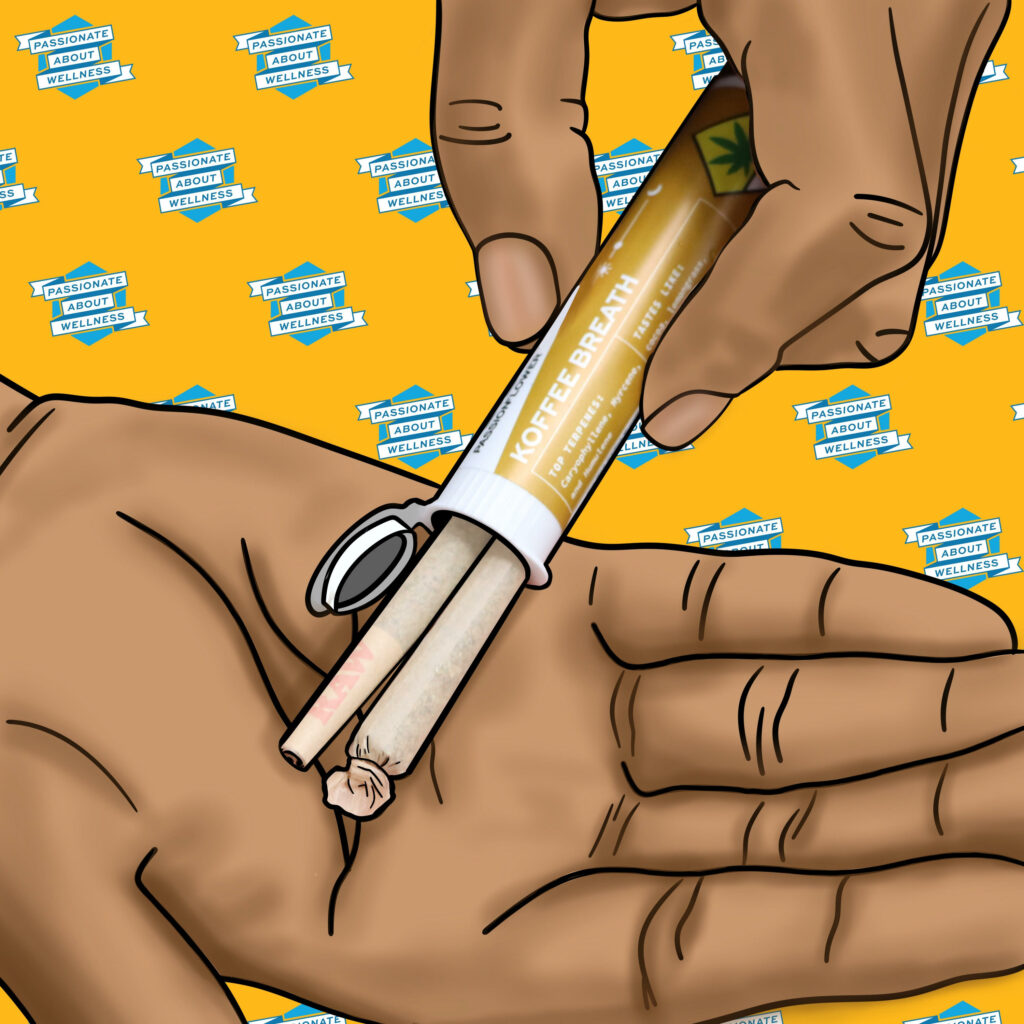In our quest to understand the human body’s intricate systems, science continually uncovers remarkable secrets. One such revelation is the existence of self-made cannabinoids within our bodies, potentially holding the key to treating stress-related disorders like depression and PTSD. In this blog post, we’ll delve into a groundbreaking study that sheds light on this fascinating discovery.

The Endocannabinoid System: Our Body’s Natural Regulator
We are already familiar with the endocannabinoid system, a complex network of cannabinoid receptors that interact with compounds like THC and CBD found in cannabis. This system plays a vital role in regulating various bodily functions. However, until recently, the brain activity patterns and neural circuits influenced by these cannabinoids remained largely mysterious.
Brain’s Response to Stress: Self-Made Cannabinoids at Work
A recent study conducted by Northwestern Medicine, published in the journal Cell Reports, has unveiled a remarkable finding. The brain’s emotional hub, known as the amygdala, has the capacity to release its own cannabinoid molecules in response to stress. These molecules act as a natural defense mechanism, reducing the stress signals sent by the hippocampus, which controls memory and emotions.
This discovery reinforces the idea that our brains possess innate cannabinoid molecules crucial for our body’s innate coping response to stress. It also suggests that deficiencies in this endogenous cannabinoid signaling system could increase susceptibility to stress-related psychiatric disorders like depression and post-traumatic stress disorder (PTSD).
Further Research Required
While this study offers valuable insights, more research is needed to understand precisely how these mechanisms function within the human brain. Dr. Sachin Patel, the corresponding study author, emphasizes the importance of ongoing research in this area.
The Role of Self-Made Cannabinoids in Stress Management
The study’s authors recognize the profound impact of stress on mental health and the potential for stress-related psychiatric disorders to develop or worsen. Understanding how stress triggers molecular, cellular, and circuit-level adaptations in the brain could pave the way for innovative therapeutic interventions.
Scientists at Northwestern Medicine employed a cutting-edge protein sensor capable of detecting these cannabinoid molecules in real-time at specific brain synapses. Their findings revealed that specific high-frequency patterns of amygdala activity trigger the release of these molecules. Moreover, the sensor demonstrated that mice brains released these molecules in response to various types of stress.
The Link Between Cannabinoids and Stress Relief
To further validate their findings, scientists removed the target of these self-made cannabinoids, the cannabinoid receptor type 1. This led to worsened stress coping abilities and motivational deficits in the mice. Additionally, mice exhibited more passive and immobile responses to stress and a reduced preference for sweetened sucrose water after stress exposure.
Treating Stress-Related Disorders in the Future
This groundbreaking research holds immense potential for treating stress-related disorders. Dr. Sachin Patel and Lizzie Gilman, Professor of Psychiatry and Behavioral Sciences at Northwestern Medicine, emphasize the significance of understanding how the brain adapts to stress at the molecular, cellular, and circuit levels.
The endocannabinoid system emerges as a promising candidate for drug development in stress-related psychiatric disorders. This intricate signaling network, comprising endocannabinoids, enzymes, and cannabinoid receptors, plays a vital role in regulating various biological functions.
Dabbling with Cannabinoids other than THC & CBD
In our quest to understand the remarkable potential of self-made cannabinoids in alleviating stress, it’s essential to recognize the broader spectrum of cannabis products available today. Beyond THC and CBD, the cannabis plant contains a multitude of minor cannabinoids, each with its unique properties.
When combined, these minor cannabinoids can produce what is known as the “entourage effect,” a synergistic interaction that enhances their therapeutic benefits. By exploring this rich diversity of cannabinoids, we can unlock a spectrum of relaxing feelings and therapeutic effects, offering new avenues for personalized stress relief and well-being.
If you’re interested in conducting your own little studies on how different cannabinoids affect you, check out our Passion Flower products and stop by a dispensary near you.

In Conclusion
As we look ahead, the question arises: Can increasing levels of self-made cannabinoids serve as potential therapeutics for stress-related disorders? Ongoing clinical trials in this field may soon provide the answers we seek.
In conclusion, the discovery of self-made cannabinoids within the human body offers a promising avenue for understanding and treating stress-related disorders. As research continues to unlock the secrets of our endocannabinoid system, we may be on the brink of groundbreaking breakthroughs in the field of mental health. Stay tuned for further developments in this exciting journey towards stress relief and well-being.






